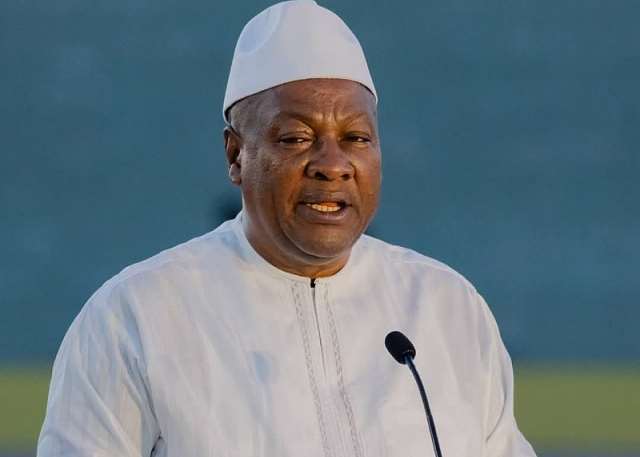President John Dramani Mahama’s address at the National Day of Prayer and Thanksgiving, specifically the Muslim session held at the National Mosque in Accra, centered on the critical importance of unity and peaceful coexistence within Ghana’s diverse society. He implored Ghanaians, particularly the Muslim community, to actively champion national harmony by consciously rejecting the divisive forces of tribalism, extremism, and political manipulation. The President framed Ghana’s rich tapestry of religious and ethnic backgrounds not as a source of potential conflict, but rather as a divine blessing, a source of strength, and a catalyst for collective progress. He argued that embracing this diversity is essential for fostering a unified and prosperous nation.
Mahama’s call for unity was underscored by a clear warning against the creeping dangers of intolerance and the potential for political exploitation of societal divisions. He characterized peace as a precious and fragile commodity, one that requires constant vigilance and the concerted effort of all citizens to protect and maintain. The President stressed that complacency in safeguarding national unity could have devastating consequences, emphasizing the need for proactive measures to prevent the erosion of peaceful coexistence. He invoked a verse from the Holy Qur’an, highlighting the divine intention behind human diversity, emphasizing that differences are meant to foster understanding and cooperation, not conflict and division.
The President further elaborated on the concept of diversity as a strength, arguing that Ghana’s varied ethnicities, languages, and religious beliefs should be viewed as essential components in building a strong and cohesive nation. Rather than being perceived as obstacles or sources of division, these differences, he argued, should be harnessed to create a shared purpose and drive national development and prosperity. He envisioned a Ghana where diverse perspectives and experiences enrich the national discourse and contribute to innovative solutions for the country’s challenges.
Beyond the imperative of national unity, President Mahama also emphasized the significant role of ethical leadership and individual responsibility in building a strong and just society. Drawing upon the teachings of Prophet Muhammad, he underscored the concept of stewardship and accountability, emphasizing that every individual, regardless of their position or status, has a responsibility to contribute to the well-being of the community. He called upon all Ghanaians, whether in public office or private life, to embrace the principles of integrity, compassion, and accountability in their actions and decisions, fostering a culture of responsible citizenship.
The National Day of Prayer and Thanksgiving itself served as a powerful symbol of the nation’s commitment to unity and peace. Observed across the country, the event brought together leaders and citizens from various religious backgrounds in a shared moment of reflection, reconciliation, and renewed dedication to maintaining peace and harmony. This collective act of prayer and thanksgiving demonstrated the potential for interfaith dialogue and cooperation in strengthening the fabric of Ghanaian society.
In essence, President Mahama’s message centered on the interconnected themes of unity, diversity, and responsible leadership. He called for a collective commitment to protecting the fragile peace that Ghana enjoys, urging citizens to reject divisive forces and embrace the nation’s rich diversity as a source of strength. He emphasized the importance of ethical leadership and individual responsibility in building a cohesive and prosperous nation, highlighting the National Day of Prayer and Thanksgiving as a powerful testament to the shared values that bind Ghanaians together. His call to action was a plea for active citizenship, where each individual contributes to the greater good and works towards the common goal of a united and prosperous Ghana.


